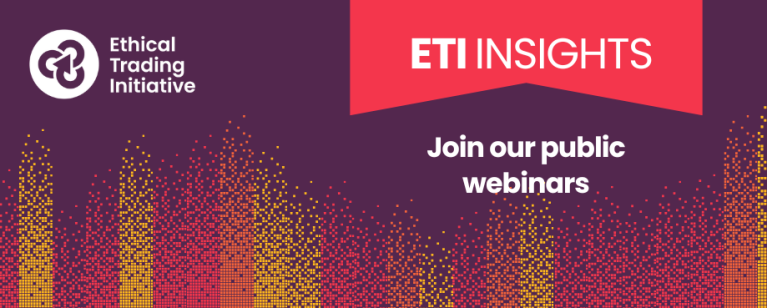
Bringing together expert speakers from across ETI’s secretariat, members and partners, ETI's new webinar series will share insights and guidance on key issues impacting responsible business worldwide. This series is free and open to all with key resources available to ETI members and non-members.
ETI Insights will focus on some of the most pertinent issues impacting human rights in global supply chains today. Take a glimpse into ETI's expertise on issues ranging from just transitions and responsible purchasing practices, to mandatory human rights due diligence and more.
Next events

Human rights and environmental due diligence laws – what this means for businesses
Join us for a practical webinar on the fast-evolving landscape of human rights and environmental due diligence — and what it means for your business.
Past events
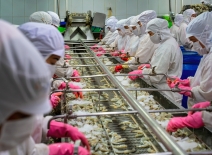
How purchasing practices shape human rights in shrimp supply chains
This webinar presents new research assessing purchasing practices against the ETI Base Code, showing how various factors contribute to human rights risks in the shrimp supply chain.

Looking Beyond Compliance: What human rights due diligence means for leather
Key insights from ETI's new Leather Due Diligence guidance followed by a panel discussion featuring industry experts from across the value chain.
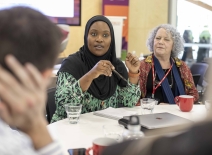
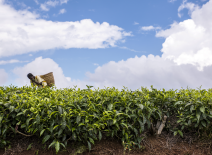
Addressing GBVH in commercial agriculture and fisheries
The official launch of our GAIA Principles to address GBVH in commercial agriculture and fisheries.

Emerging circular supply chains: Safeguarding child and human rights
How circularity can - and must - go beyond environmental goals to include social responsibility.
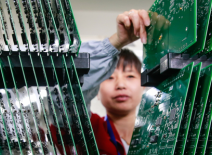
ETI insights: Responsible Purchasing Practices – Driving Change in Manufacturing
Responsible purchasing practices (RPP) are vital for improving labour conditions and sustainability across supply chains.

ETI Insights: Mined minerals & metals – Challenges & opportunities in HRDD
Hear outcomes of recent research conducted by ETI on HRDD within the mining and metals industry.

ETI Insights: Climate change - Addressing extreme heat impacts for workers
Extreme heat is a human rights risk rapidly increasing in saliency. Join this free webinar to learn more.
